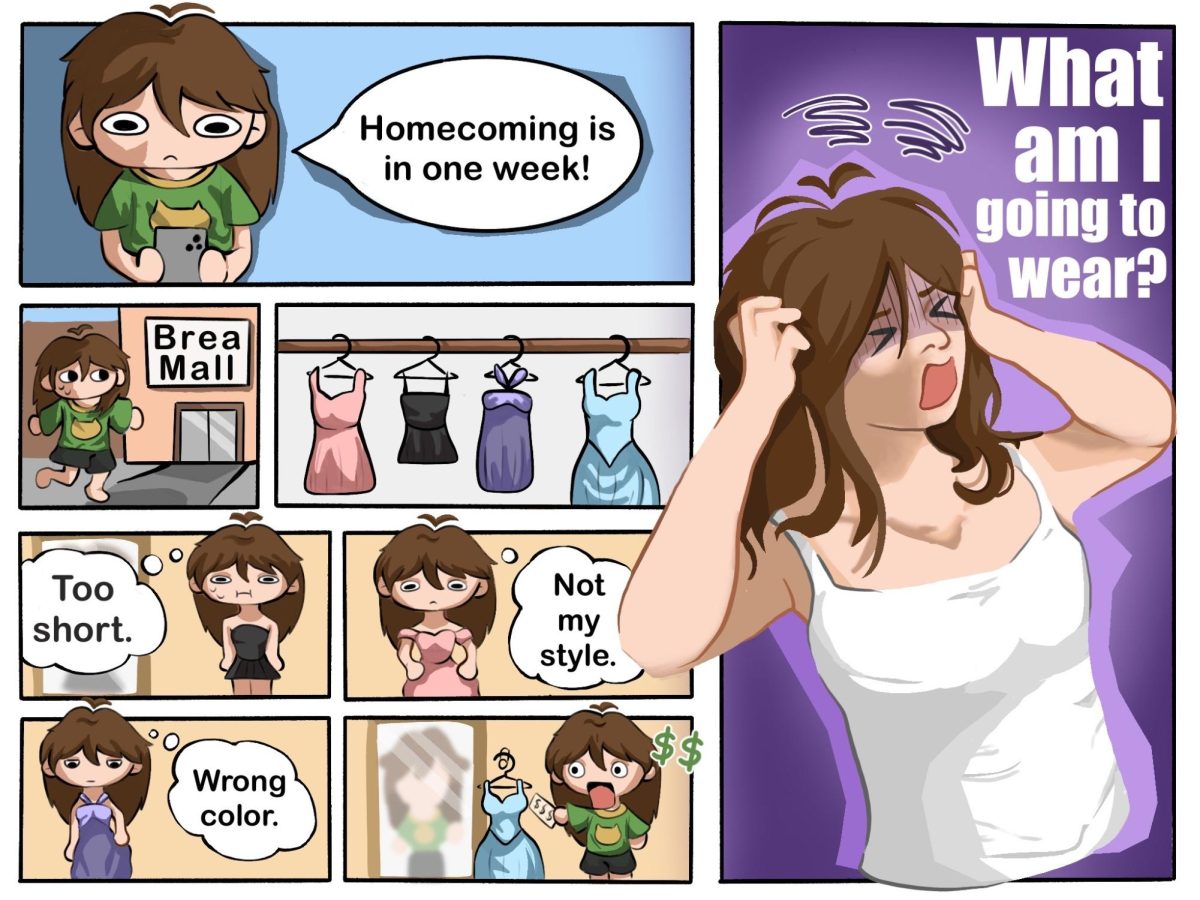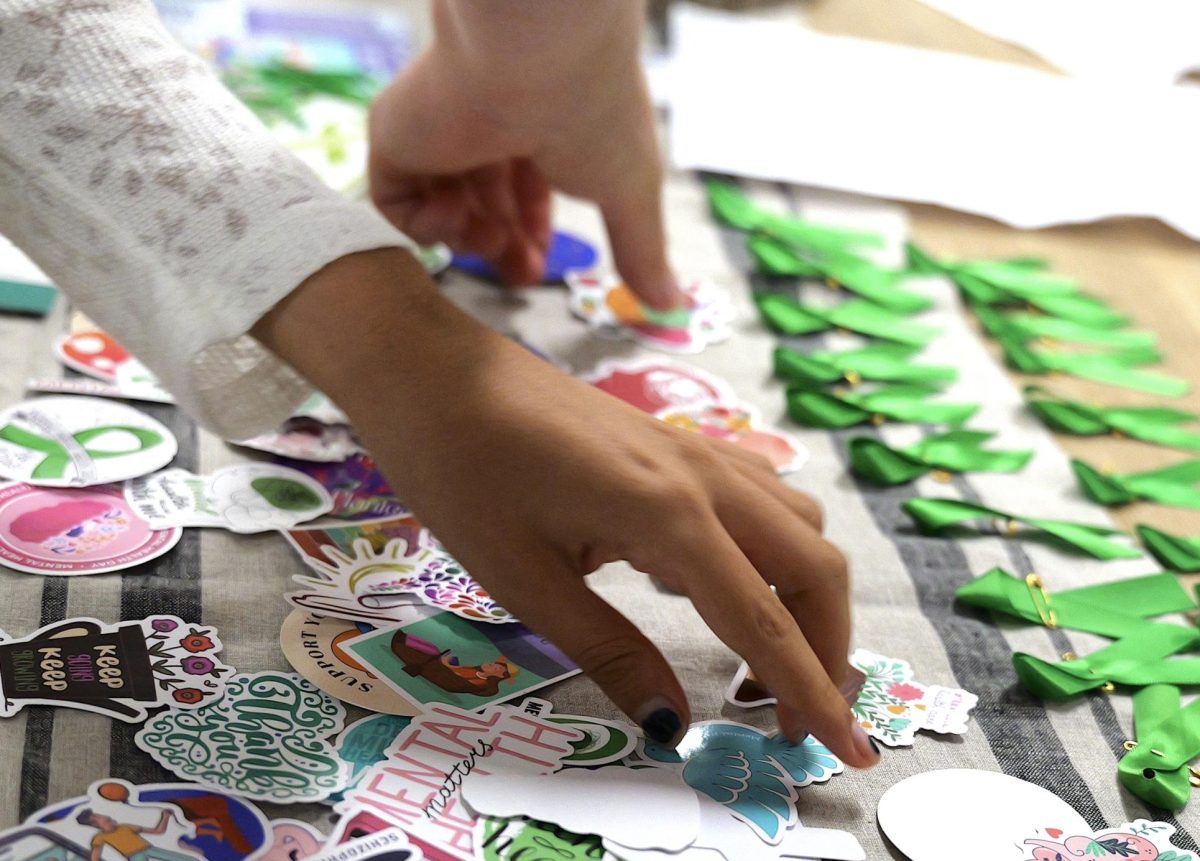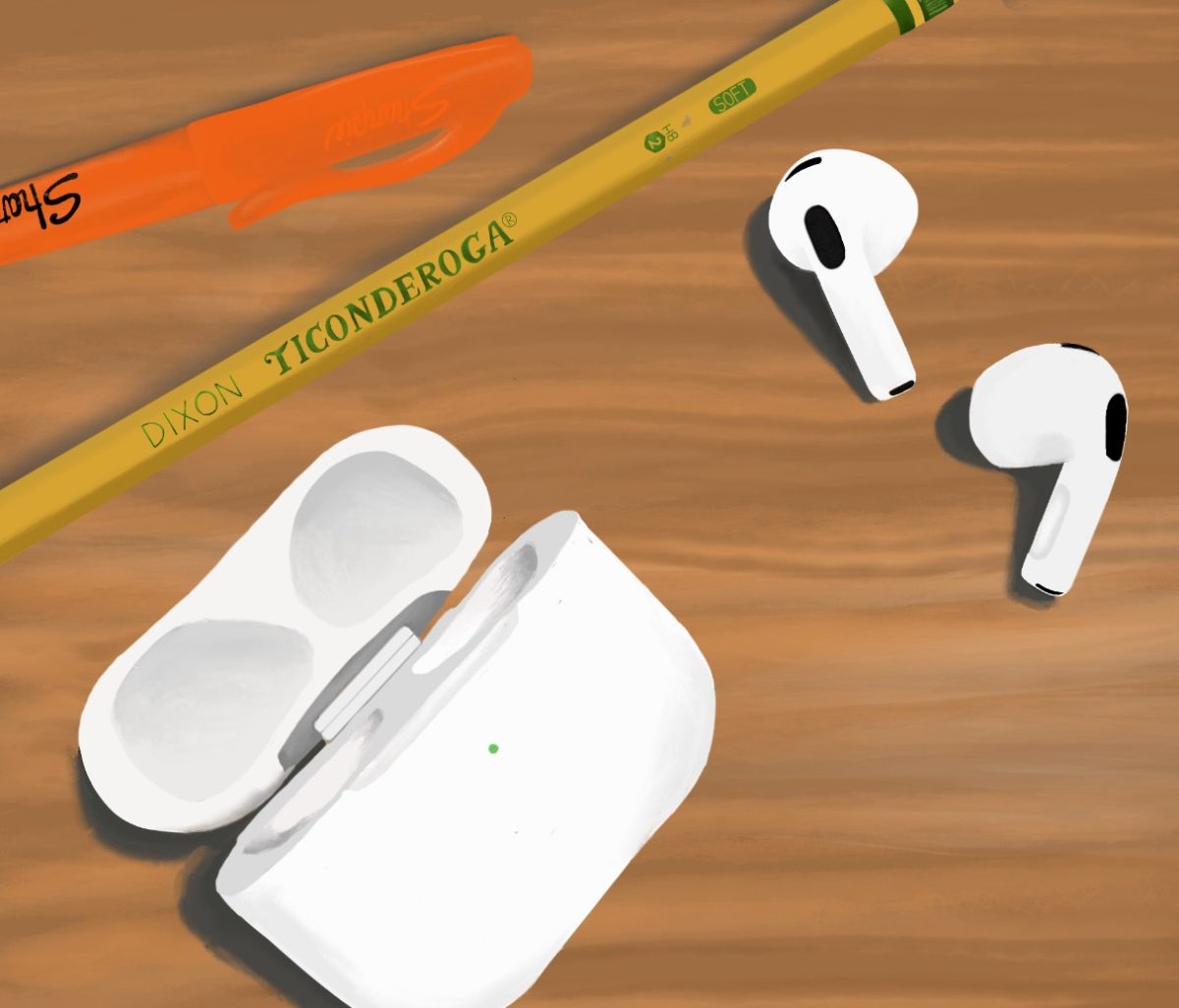Jewels glint off butter-smooth skin framed by fluffed feathers, a deep red. Dark eyeliner circles electric blue eyes. A 1920s-reminiscent bob crowned with diamonds. The Jazz Age luxury of a Gatsby-like mansion. Hot stage lights awash over Taylor Swift, who perches on a throne at the center of opulence.
Since pop star Swift’s 12th studio album, The Life of a Showgirl (TLOAS), was announced Aug. 12, it’s these visuals that suggested a record dripping with sultriness and glamour (and perhaps a little subversion).
TLOAS, alas, is none of these.
From 1989 to The Tortured Poets Department (TTPD), music producer and songwriting giant Jack Antonoff partnered with Swift to refine, mature, and elevate her sound.
On TLOAS, however, Max Martin and Shellback stepped in as lead producers. Their pop pedigree — Selena Gomez, Justin Timberlake, Katy Perry — might explain why Swift’s newest album, which dropped at midnight Oct. 3, leans heavily to pop-polish, but also lacks the sonic depth that made TTPD — released only 18 months ago — dynamic and memorable even among the other releases of Swift’s 21-year career.
In short, each TLOAS track feels like tepid versions of themes Swift has masterfully penned in the past, but without the emotional heft and honesty, nor inventive instrumentals to make them memorable.
TLOAS crackles to life with “The Fate of Ophelia” (an allusion to the tragedy of Ophelia in Shakespeare’s Hamlet), built around repetitive loops of synth and drum beats. The song’s saving grace is a soaring chorus with catchy ABAB rhyme schemes — “Keep it one hundred on the land, the sea, the sky / Pledge allegiance to your hands, your team, your vibes” — sung over a bright, resonant synth.
The album opener’s topic is her relationship with Travis Kelce, tight end of the Kansas City Chiefs, a subject revisited again and again (and again) on the songs “Opalite,” “Elizabeth Taylor,” and “Wood.” Although Swift has famously built entire projects out of relationships in the past (2010’s Speak Now, 2019’s Lover, ), each of these four tracks bleed into the next with indistinguishable mid-tempo beats and melodies that rarely spur excitement.
“Eldest Daughter,” a piano-framed lament on alienation, echoes past masterpieces like TTPD‘s “Who’s Afraid of Little Old Me?” and Folklore‘s “this is me trying,” which evoke imagery of spectral towns and haunting vocal refrains of Swift’s self-perceived inadequacy. Compared to those sorrowful triumphs of the past, “Eldest Daughter” falls flat in a way similar to many other songs on the record: Gen Z slang-sprinkled lyricism (like the cringeworthy “I’m not a bad bitch, and this isn’t savage”) to make up for lackluster imagery and barren instrumentals.
The more confrontational tracks, like “CANCELLED!” and “Actually Romantic,” fall most in line with her Reputation-era songs that unabashedly take shots at foes and the hypocrisy of public opinion. While scathing and unapologetic on Reputation’s bass-filled tracks, TLOAS’s take on these subjects feels worn, half-hearted, and the instrumentals sound too reminiscent of music playing in mall dressing rooms.
Although the record has a twinkly, playful charm that evokes the glitz and carefreeness of an F. Scott Fitzgerald novella, the songs settle into homogeneity in an attempt at cohesion. Ironically, given the luxury of the ad campaign and the promise of the album’s title, the music includes very little showmanship.
Swift’s 12th album feels like a carefully constructed spectacle that often forgets to thrill. We expected extravagance and even a little “showgirl” allure from the 35-year-old Swift, but for an artist who has built her career on reinvention, TLOAS feels disappointingly risk-averse and formulaic.
Swift may be a showgirl cloaked in sequins and towering feathers for her latest release, but she’s merely moving through the motions, bland and rich and in love with an NFL star, and not at all the tortured poet we all hoped she’d remain.




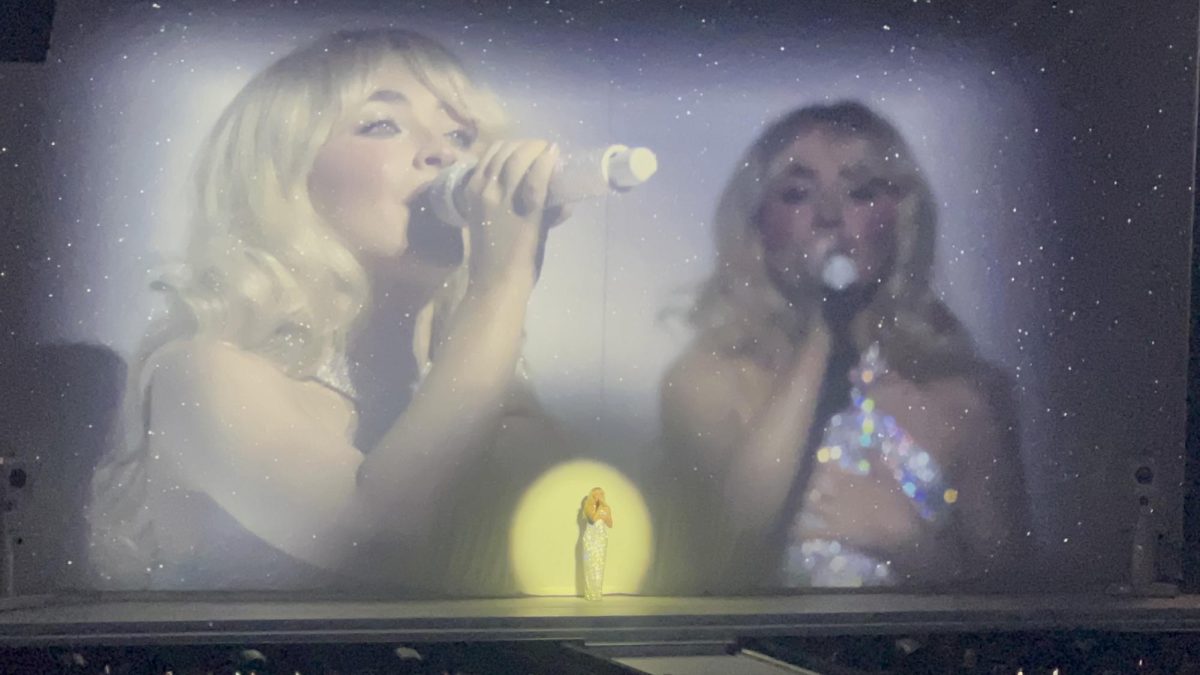


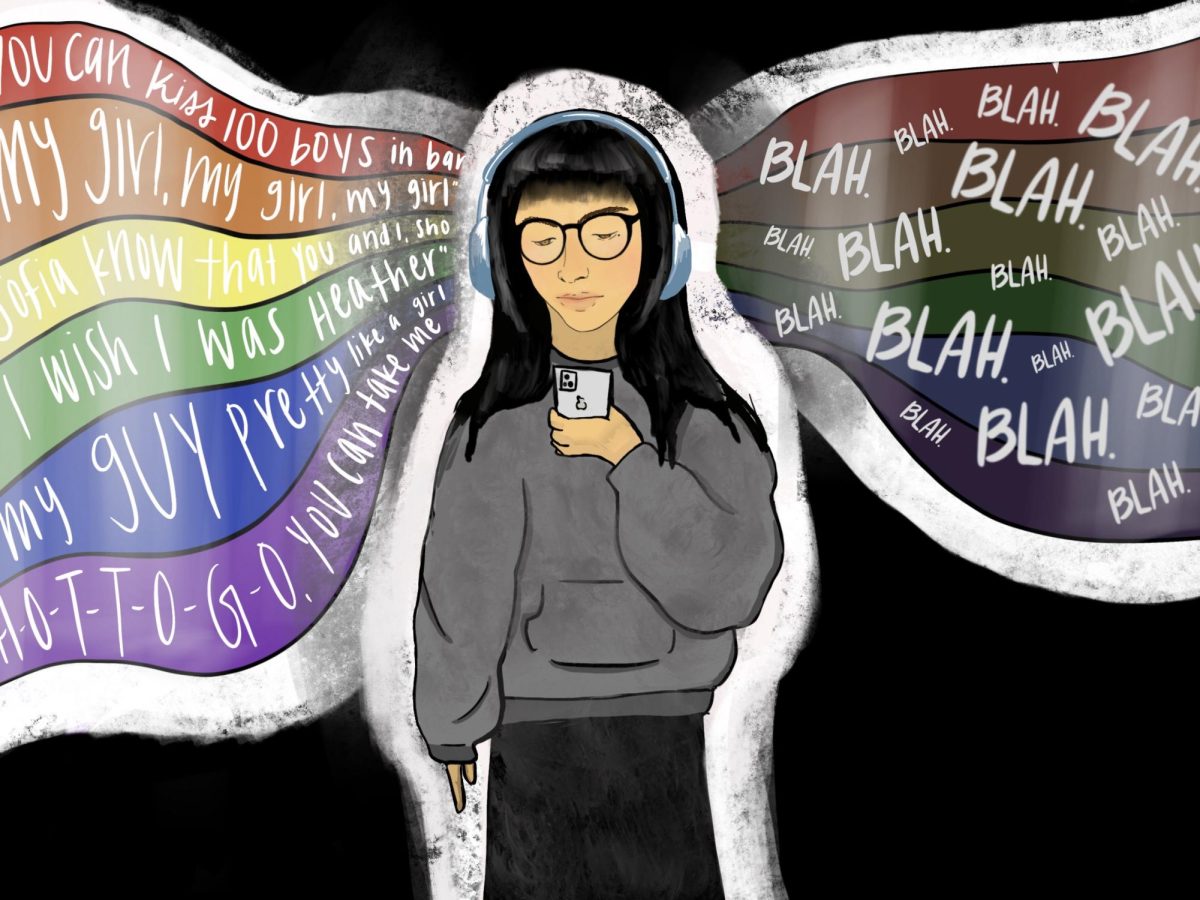

![Scenes of violence interspersed with memes are an everyday reality for teens plugged into social media. Image Sources: “A Photograph of George Floyd at the George Floyd Memorial” by Laurie Shaull [CC-BY-SA-2.0]; "Protestors in support of Israel and Palestine clash in the United States" by Ted Eytan [CC-BY-SA-4.0]; “ICE Facilities” by Sandor Csudai [CC-BY-SA-4.0]; “Charlie Kirk” by Gage Skidmore [CC-BY-SA-2.0]; “U.S. President Donald Trump” [CC-BY-SA-1.0]; "Police at Annunciation Catholic School in Minneapolis on August 27, 2025" by Chad Davis [CC-BY-SA-4.0]; “Israeli Airstrike on Gaza Strip” [CC-BY-SA-4.0]; "Scenes from Gaza Crisis" [CC-BY-SA-2.0]](https://breaolindawildcat.com/wp-content/uploads/2025/10/Image_20251003_094411_051-1200x1029.jpeg)
